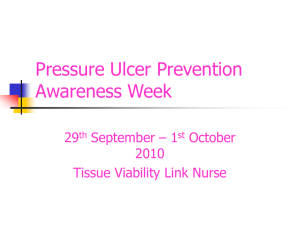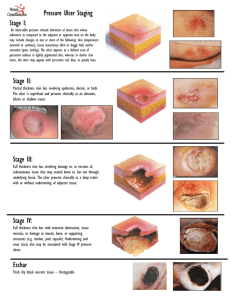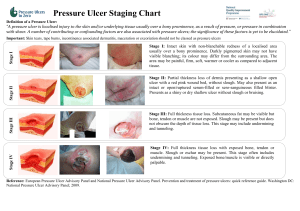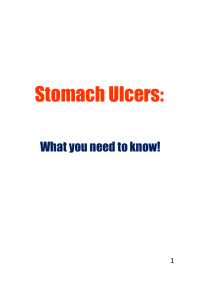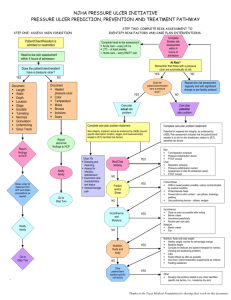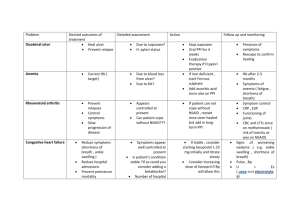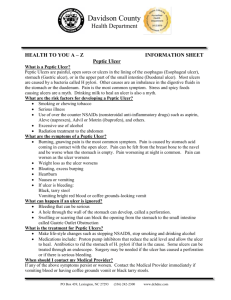INSTRUCTION SHEET: PEPTIC ULCER University of North Carolina Wilmington
advertisement
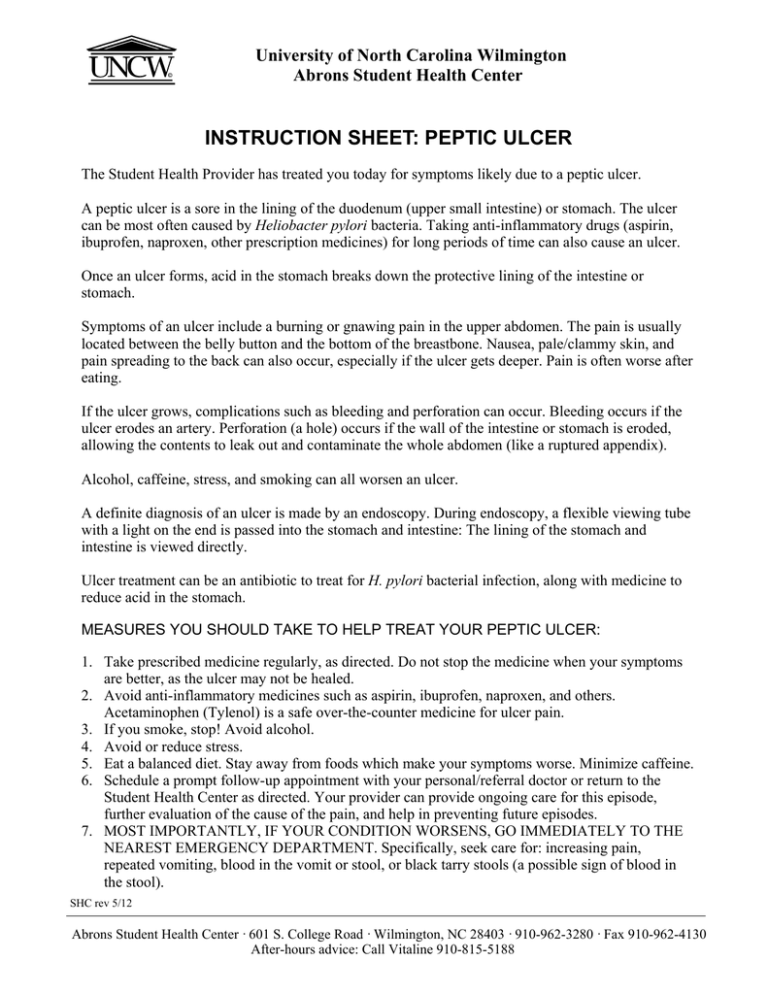
University of North Carolina Wilmington Abrons Student Health Center INSTRUCTION SHEET: PEPTIC ULCER The Student Health Provider has treated you today for symptoms likely due to a peptic ulcer. A peptic ulcer is a sore in the lining of the duodenum (upper small intestine) or stomach. The ulcer can be most often caused by Heliobacter pylori bacteria. Taking anti-inflammatory drugs (aspirin, ibuprofen, naproxen, other prescription medicines) for long periods of time can also cause an ulcer. Once an ulcer forms, acid in the stomach breaks down the protective lining of the intestine or stomach. Symptoms of an ulcer include a burning or gnawing pain in the upper abdomen. The pain is usually located between the belly button and the bottom of the breastbone. Nausea, pale/clammy skin, and pain spreading to the back can also occur, especially if the ulcer gets deeper. Pain is often worse after eating. If the ulcer grows, complications such as bleeding and perforation can occur. Bleeding occurs if the ulcer erodes an artery. Perforation (a hole) occurs if the wall of the intestine or stomach is eroded, allowing the contents to leak out and contaminate the whole abdomen (like a ruptured appendix). Alcohol, caffeine, stress, and smoking can all worsen an ulcer. A definite diagnosis of an ulcer is made by an endoscopy. During endoscopy, a flexible viewing tube with a light on the end is passed into the stomach and intestine: The lining of the stomach and intestine is viewed directly. Ulcer treatment can be an antibiotic to treat for H. pylori bacterial infection, along with medicine to reduce acid in the stomach. MEASURES YOU SHOULD TAKE TO HELP TREAT YOUR PEPTIC ULCER: 1. Take prescribed medicine regularly, as directed. Do not stop the medicine when your symptoms are better, as the ulcer may not be healed. 2. Avoid anti-inflammatory medicines such as aspirin, ibuprofen, naproxen, and others. Acetaminophen (Tylenol) is a safe over-the-counter medicine for ulcer pain. 3. If you smoke, stop! Avoid alcohol. 4. Avoid or reduce stress. 5. Eat a balanced diet. Stay away from foods which make your symptoms worse. Minimize caffeine. 6. Schedule a prompt follow-up appointment with your personal/referral doctor or return to the Student Health Center as directed. Your provider can provide ongoing care for this episode, further evaluation of the cause of the pain, and help in preventing future episodes. 7. MOST IMPORTANTLY, IF YOUR CONDITION WORSENS, GO IMMEDIATELY TO THE NEAREST EMERGENCY DEPARTMENT. Specifically, seek care for: increasing pain, repeated vomiting, blood in the vomit or stool, or black tarry stools (a possible sign of blood in the stool). SHC rev 5/12 Abrons Student Health Center · 601 S. College Road · Wilmington, NC 28403 · 910-962-3280 · Fax 910-962-4130 After-hours advice: Call Vitaline 910-815-5188
